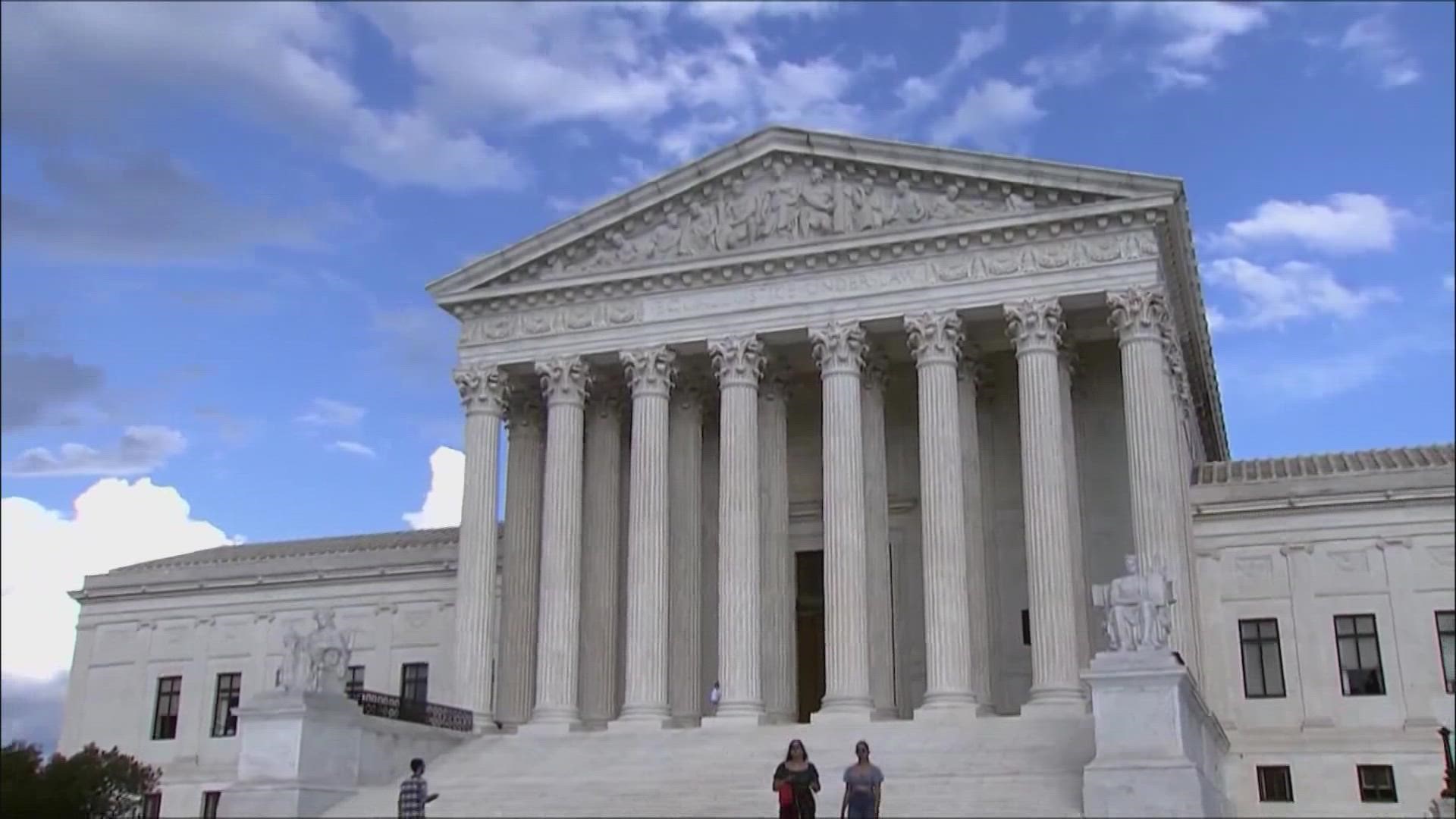DALLAS —
If the Supreme Court overturns Roe v. Wade, a person in North Texas would have to travel roughly 300 additional miles to reach an abortion provider.
Axios released an interactive map of the United States that shows the distance to the nearest abortion provider by county as it currently stands and the projected distances if the precedent set by Roe v. Wade was overturned, according to the Myers Abortion Facility database.
In the biggest challenge to abortion rights in decades, the Supreme Court’s conservative majority on Wednesday signaled they would allow states to ban abortion much earlier in pregnancy and may even overturn the nationwide right that has existed for nearly 50 years.
All six conservative justices, including three appointed by former President Donald Trump, indicated they would uphold a Mississippi law that bans abortion after 15 weeks of pregnancy. The Supreme Court has never allowed states to ban abortion before the point at roughly 24 weeks when a fetus can survive outside the womb.
If the Supreme Court ruled in Mississippi’s favor, abortion would be banned in 12 states, including Texas, Oklahoma, Arkansas, Louisiana, Mississippi, Missouri, Tennessee, Kentucky and Utah.
The closest facility a person in Dallas could access would be about 366 miles away in Wichita, Kansas. Currently, there are three abortion providers currently serving North Texas: one in Fort Worth and two in Dallas, according to Axios.
For the major counties in North Texas, here's a look at the distance to the nearest provider by road, if the Supreme Court upholds the ban:
- Dallas: Wichita, Kansas (~365 miles)
- Tarrant: Wichita, Kansas (~360 miles)
- Collin: Wichita, Kansas (~362 miles)
- Denton: Wichita, Kansas (~355 miles)
- Ellis: Wichita, Kansas (~387 miles)
- Johnson: Wichita, Kansas (~381 miles)
- Parker: Wichita, Kansas (~383 miles)
- Kaufman: Wichita, Kansas (~390 miles)
The oral arguments were underway on Tuesday, but it could be months before a decision is made. At the very least, such a decision would undermine Roe and Planned Parenthood v. Casey, which allows states to regulate but not ban abortion up until the point of fetal viability, at roughly 24 weeks.
In Texas, senate bill 8, the so-called heartbeat bill, became law, banning abortions in the state as early as six weeks. After six weeks, the law doesn't allow abortions in the case of rape or incest but makes an exception if the mother's life is in danger.
People have criticized the law, saying that six weeks isn't enough time for many women to even know they are pregnant and that rape is an underreported crime.
The way the bans are enforced in the two states is the main difference: Mississippi’s law is enforced by the state and Texas’ law is enforced by private citizens.
The bill would be enforced by private citizens empowered to sue abortion providers and others who help someone get an abortion after six weeks, for example, by driving them to an abortion clinic.
Those private citizens would not need to have a connection to an abortion provider or a person seeking an abortion.
The bill has been denounced by hundreds of lawmakers and doctors — in letters circulated by opponents of the measure — who said its broad legal language could open the door to harassing or frivolous lawsuits that could have a “chilling effect” on abortion providers.

